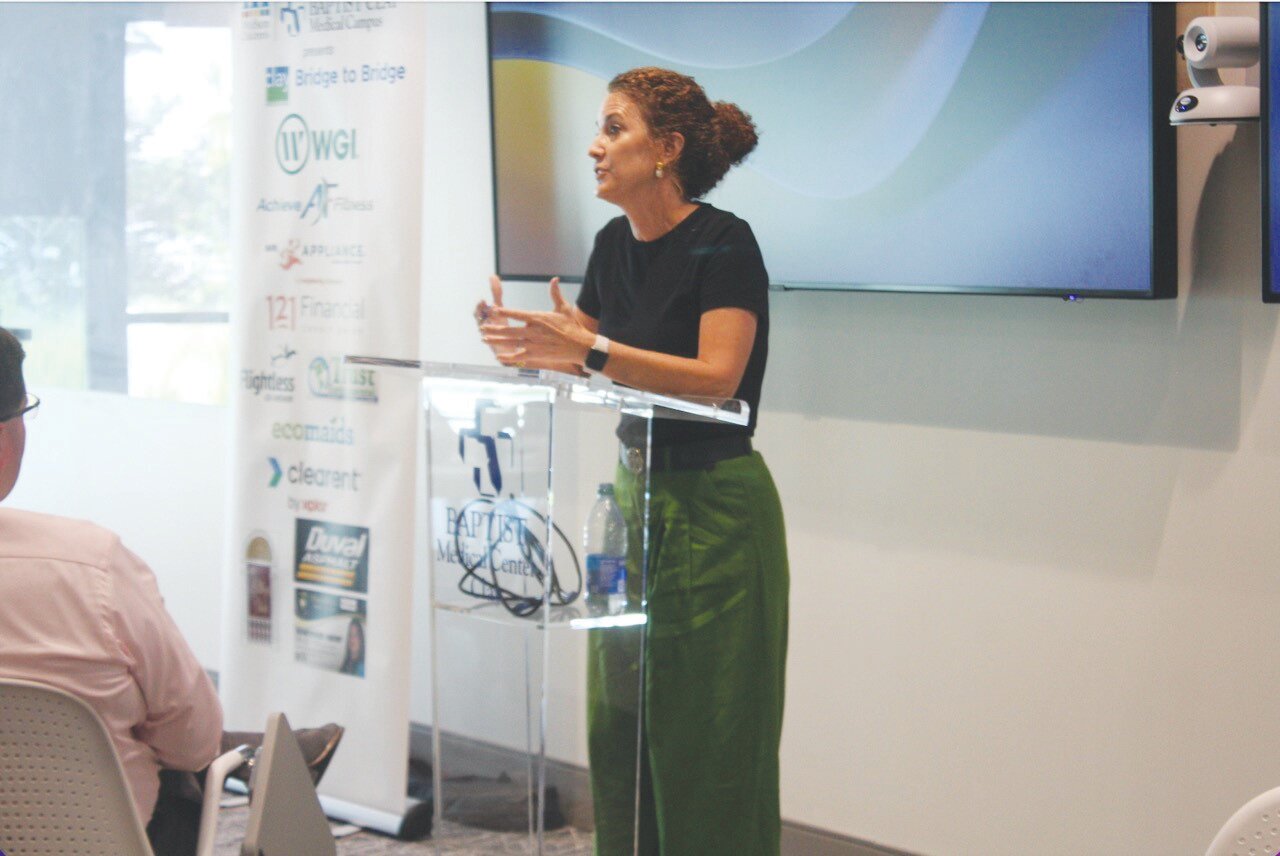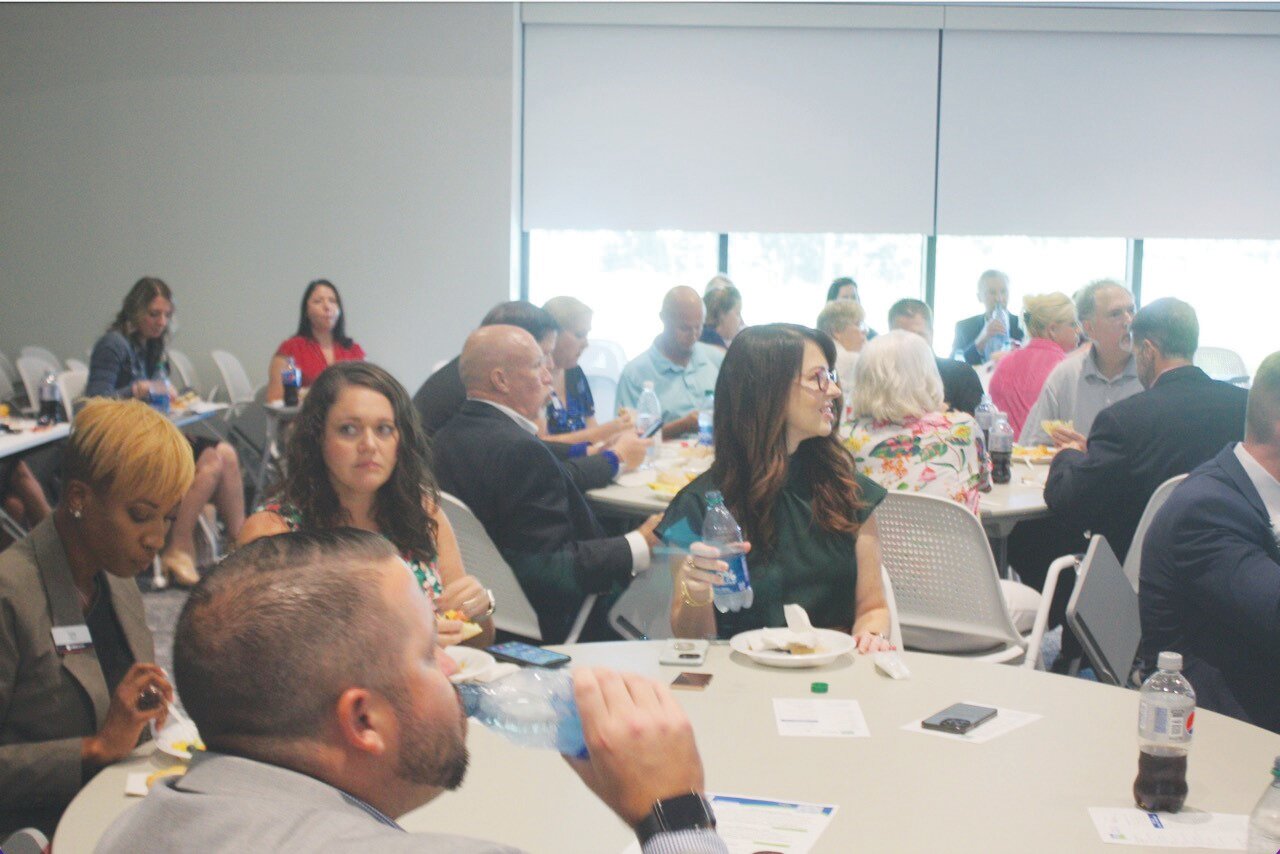Jennifer Bradley said legislature to tackle complex insurance problems
State Senator gives other updates at Bridge-to-Bridge function
FLEMING ISLAND – Florida Sen. Jennifer Bradley (R-Fleming Island) highlighted property insurance concerns in her constituents’ districts last week at the Clay Chamber’s Bridge to Bridge …
This item is available in full to subscribers.
Attention subscribers
To continue reading, you will need to either log in to your subscriber account, below, or purchase a new subscription.
Please log in to continueDon't have an ID?Print subscribersIf you're a print subscriber, but do not yet have an online account, click here to create one. Non-subscribersClick here to see your options for subscribing. Single day passYou also have the option of purchasing 24 hours of access, for $1.00. Click here to purchase a single day pass. |
Jennifer Bradley said legislature to tackle complex insurance problems
State Senator gives other updates at Bridge-to-Bridge function
FLEMING ISLAND – Florida Sen. Jennifer Bradley (R-Fleming Island) highlighted property insurance concerns in her constituents’ districts last week at the Clay Chamber’s Bridge to Bridge Meeting.
Bradley also chairs the Civil and Criminal Justice for the Senate, providing deep, behind-the-scenes insights into the challenges home and property owners face in the district and the state and the steps Florida’s government takes to mitigate the issues.
Bradley talked about area and state politics, including upcoming delegation meetings in her seven-county territory encompassing a wide range of Northeast Florida, which also includes Baker, Bradford, Columbia, Dixie, Gilchrist, Lafayette, Levy, Suwanee, Union and portions of Marion. She said the county’s delegation meeting will be on Oct. 4.
The state’s budget is $117 billion; if it were a country, it would have the No. 15 largest economy in the world. Bradley expressed confidence in a strong economy where revenues exceeded projections and heading into the next legislative session, she expects a well-balanced budget, thanks to revenues and a fiscal approach to money management.
“We have the right reserves, and our very conservative approach to budgeting during COVID helped us. We had (rainy day) funds to be able to ride out the (recent) hurricanes,” Bradley said.
More than 200 pieces of legislation passed last year. Bradley said she “couldn’t remember another session that looked like that.”
Expectations are higher ahead of this year’s session.
Bradley said that a primary focus would be a distribution of monies from Hurricane Idalia, noting the unique nature of this year’s storm, which hit a “very different” area of the state compared to Hurricane Ian last year.
Less-income residents in a largely rural area define the Northwest Florida region. She said those citizens have a distinct set of issues that need to be addressed regarding homeowners’ insurance.
“It’s not the sexiest issue, but it’s the issue I hear over and over again,” Bradley said. She then explained how the state landed in this predicament and the recent efforts that elected officials have taken to act.
Bradley highlighted her role on the Resiliency Committee in responding to Hurricane Ian. She stressed the importance of government and state assistance in helping homeowners rebuild, streamlining the permitting process and addressed the host of issues faced by communities impacted by natural disasters.
Bradley outlined the factors that contribute to the state’s current status of property insurance, with a history of catastrophic storms, smaller carriers and recent rising costs due to inflation counting as contributing factors.
“Florida is a very unique insurance market. (Residents) are described as living on a peninsula in the middle of a wind tunnel built on a sponge,” she said.
One of the significant cost drivers, Bradley pointed out, is reinsurance – insurance the insurance companies purchase. These reinsurers, primarily based in Europe, began raising their rates by 30-50% after witnessing the impact of recent storms. These rates are eventually passed on to consumers.
Bradley said insurance companies in the state have faced an average annual loss of $1 billion annually in the last five years. Some insurance companies reached insolvency, bankrupting and leading to a significant shift of policies to Citizens’ Insurance.
In Clay County alone, there has been a nearly 53% increase in Citizens’ policies since 2019 – the number skyrocketing from 680 to almost 4,300, and total exposure shifting from $84 million to $1.7 billion.
Bradley also discussed the role of third-party actors, some of whom abuse Assignment of Benefits, in driving up rates. She said contractors in various parts of the state capitalized on AOB to make large claims, contributing to the litigious nature of the market. She assured the Florida Legislature has been actively working to address these challenges. She cited recent legislation aimed at curbing AOB and implementing litigation reforms.
She also expressed reservations about certain aspects of these reforms, like the provision where each party pays their attorney fees in insurance dispute cases.
With the recent developments and ongoing efforts in Tallahassee, Bradley expressed hope for property insurance rates in the state during the next five to 10 years.
“The idea is to stop the bleeding and get the rates to stay steady in the meantime. Then, the hope is that rates will stop going up, and we can bring in more (well-capitalized) companies to the state and prices start to go down,” she said.
She encouraged residents whose insurance companies dropped to consult with their agents. Bradley said addressing property insurance in the state is a complex endeavor and officials in Tallahassee are working toward a more stable and sustainable market.










